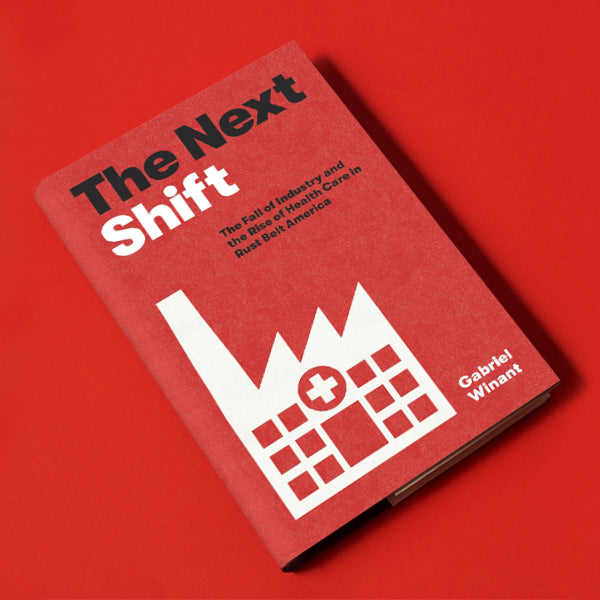The Next Shift, by Gabriel Winant
Couldn't load pickup availability
Pittsburgh was once synonymous with steel. But today most of its mills are gone. Like so many places across the United States, a city that was a center of blue-collar manufacturing is now dominated by the service economy—particularly health care, which employs more Americans than any other industry. Gabriel Winant takes us inside the Rust Belt to show how America’s cities have weathered new economic realities. In Pittsburgh’s neighborhoods, he finds that a new working class has emerged in the wake of deindustrialization.
As steelworkers and their families grew older, they required more health care. Even as the industrial economy contracted sharply, the care economy thrived. Hospitals and nursing homes went on hiring sprees. But many care jobs bear little resemblance to the manufacturing work the city lost. Unlike their blue-collar predecessors, home health aides and hospital staff work unpredictable hours for low pay. And the new working class disproportionately comprises women and people of color.
Today health care workers are on the front lines of our most pressing crises, yet we have been slow to appreciate that they are the face of our twenty-first-century workforce. The Next Shift offers unique insights into how we got here and what could happen next. If health care employees, along with other essential workers, can translate the increasing recognition of their economic value into political power, they may become a major force in the twenty-first century.
Praise for The Next Shift
“Beautifully written, extensively researched, and sharply argued, The Next Shift offers a new way to think about the transformations often grouped together under the rubric of ‘neoliberalism.’ Winant sees deindustrialization not simply as a story of decline, but a story of the rise of a new kind of working class.” —Kimberly Phillips-Fein
“One of the most timely books of our era. The global pandemic has turned care workers into heroes while concealing the history that rendered them undervalued, underpaid, and precarious long before COVID struck. Winant recovers this history, revealing how the growth of the care industry was a consequence of, and response to, the decline of the industrial sector, and suggesting that the very laborers tasked with keeping the rest of the working class from an early grave may prove to be capitalism’s proverbial gravediggers.” —Robin D. G. Kelley
“How and why has the healthcare sector taken over formerly industrial cities? Why are care work jobs so important yet so undervalued? In one of the most important works of labor, economic, and policy history to appear in years, Gabriel Winant compellingly answers these questions. This is an essential book for understanding the healthcare system, its weaknesses, and the policies necessary to create a system that is equitable for both workers and patients.” —Thomas J. Sugrue
368 pages.


